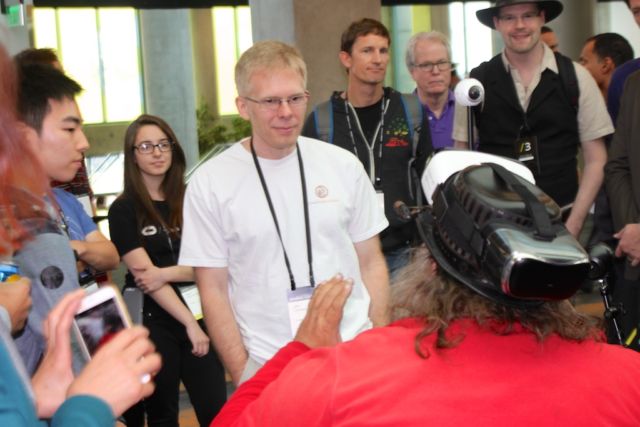
After nearly a decade, John Carmack’s time guiding VR hardware efforts at Meta (and before that at Facebook/Oculus) has come to an end. The co-founder of id Software and Demise co-creator officially left Meta on Friday night, according to an internal company memo obtained by Insider and confirmed by the New York Times.
Carmack’s departure message serves as a scathing indictment of the crippling inefficiency at Meta, which he said he was “offended by” and likened to a GPU with a measly five percent utilization rate. “We have a ridiculous amount of people and resources, but we are constantly sabotaging ourselves and wasting effort. There is no way to reconcile this,” he wrote. “I think our organization is operating at half the effectiveness that would make me happy.”
More personally, Carmack complained that it was a “struggle” for him to influence Meta’s overall direction and that he was “tired of the fight”. Despite his high rank “consulting CTO / executive advisor” title, Carmack lamented that he’s “apparently not convincing enough” to change Meta’s VR efforts for the better.
If that kind of talk sounds familiar, it may be that Carmack made similar complaints in his October Meta Connect keynote. There he talked about his internal efforts to push for the development of a “super-cheap, super-lightweight” Meta VR headset that could cost $250 and 250 grams. Instead, Meta has put its recent VR hardware efforts behind the heavily overdesigned $1,500 Quest Pro. “We’re not building that [cheap, light] headset today, but I’ll keep trying,” Carmack said with some annoyance during the keynote.
In his exit note, Carmack had some kind words for the top-selling Meta Quest 2 headset, which he called a good, successful product that “[made] make the world a better place.” However, in his October keynote, Carmack also bluntly told Meta that “Quest’s basic functionality really needs to get better” and that “our app’s launch times are slow, our transitions glitchy… We need to give it a much better…much, much faster to get into.”

In late 2021, Carmack also had some words of caution as Facebook changed its name to Meta and completely flipped behind the amorphous idea of the metaverse. Carmack said we should be wary of “architectural astronauts” who do a lot of high-level hand-waving instead of building viable products that customers find useful.
To that end, Carmack threw a public gauntlet at his fellow Meta employees by saying that “we should [Facebook Connect] in the metaverse” for the 2022 show. However, when Carmack appeared in an empty room as an awkward-looking avatar for the 2022 keynote, he stated beforehand that “this right here, this isn’t really what I meant.”
In an August podcast interview, Carmack said the nearly $1 billion Meta loses each month on its VR efforts makes him “sick to [his] stomach … But that’s how they show commitment to this … Google goes and cancels all these projects, while Meta really sticks with funding VR and AR, even further. “
